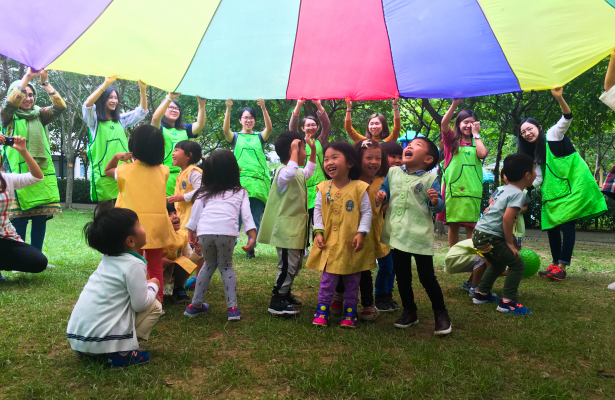Learning through means of ‘play’ which ranges from active-play that requires physical, verbal or mental engagement to pleasurable play that emphasises on enjoyment as a key feature. The manner in which children interact with one another and perform independently is learned from their surroundings, experiences and by parents and teachers. If an education system is conceptualised which utilises and manipulates play-based learning teach children, the many subjects they are required to learn. It will greatly impact the way things are done. No one child is alike. Every child learns differently and that is true for adults. By introducing play-based learning, we can maximise the academic standards by having more than one way to teach the same concepts.
Play-based learning allows students to engage in purposeful activities that will allow for the simulation of such experiences they are likely to encounter. This is generally defined as having the following four features:
1) It is usually voluntary;
2) It is intrinsically motivating, that is it is pleasurable for its own sake and is not dependent on external rewards;
3) It involves some level of activity, often physical, engagement;
4) It is distinct from other behaviours by having a make-believe quality.
Each feature leaves room for the fostering of strong metacognitive skills and the ability to build independence as well as co-dependency on their peers. Students benefit greatly from their play experiences through the innate learning method, educators can manipulate scenarios to teach children certain curriculum goals. Play and imitation are natural learning strategies where children are quick to grasp, which allows for educators to build meaningful experiences for children within the classroom through careful modelling of behaviours and opportunities of imitation and manipulation. Allowing students to manipulate their experiences is important for the child, as they will retain the information, they have gathered best in a personal manner that is meaningful to them. For this reason, students will work with their educators, peers and independently to meet the task’s objective in a play-based learning classroom. This also allows students the opportunity to safely obtain other skills they will carry on into adolescence and adulthood within their academic setting, whilst being supported by their educator. It is crucial for students to gain opportunities to explore and learn major life skills such as problem-solving, independently or with peers. The failure to use these strategies, however, may not be related so much to age but to experience and the teachers’ interventions can help even young children to develop some of the meta-components that are the strategies of successful learning.

